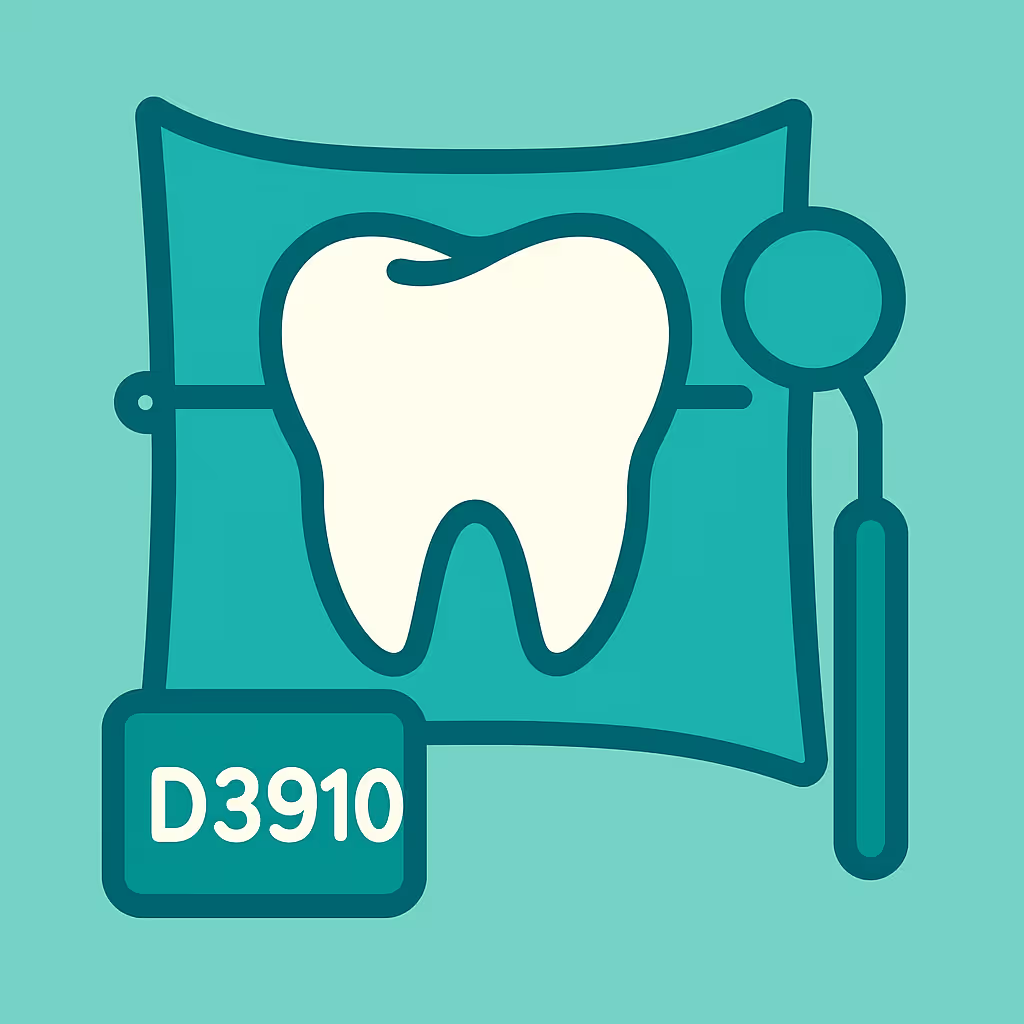Understanding Dental Code D9987
Dental billing teams often encounter cancelled appointments, but not every missed visit is handled the same way. The D9987 dental code was introduced to help practices track and, in some cases, bill for cancelled appointments. Proper use of this code can improve scheduling efficiency, clarify patient communication, and support accurate revenue cycle management (RCM).
When to Use D9987 dental code
The D9987 code is designated for cancelled appointments. According to the latest CDT guidelines, this code should be used when a patient cancels with insufficient notice, typically less than 24 hours before the scheduled time, and the practice’s policy allows for a cancellation fee. It is not used for no-shows (which may be reported with D9986), or when the practice cancels the appointment. Always ensure your office’s cancellation policy is clearly communicated to patients and documented in writing.
Documentation and Clinical Scenarios
Accurate documentation is crucial when using D9987. Best practices include:
- Recording the date and time of the cancellation.
- Noting the reason for cancellation, if provided by the patient.
- Referencing your office’s written cancellation policy in the patient’s chart.
- Documenting any communication attempts (calls, texts, emails) regarding the appointment and cancellation.
Common clinical scenarios include:
- A patient calls the morning of their appointment to cancel due to illness.
- A patient cancels less than 24 hours before their scheduled hygiene visit.
- A patient cancels a restorative procedure on short notice, and your policy specifies a cancellation fee.
Insurance Billing Tips
Most dental insurance plans do not reimburse for cancellation fees, including those billed under D9987. However, it is still important to enter this code in your practice management system for internal tracking and to maintain accurate accounts receivable (AR) records. Best practices for handling D9987 include:
- Verify your patient’s financial responsibility for cancellation fees during insurance verification.
- Clearly communicate your cancellation policy and any associated fees to patients at the time of scheduling and in confirmation reminders.
- Post D9987 as a charge on the patient’s ledger, and send a statement if the fee is not paid at the time of cancellation.
- If a patient disputes the charge, reference your signed cancellation policy and documentation in any appeals or follow-up discussions.
Example Case for D9987
Consider this scenario: Mrs. Smith has a 10:00 AM appointment for a crown prep. She calls at 8:30 AM to cancel due to a work emergency. Your office policy requires 24 hours’ notice for cancellations, and Mrs. Smith signed this policy at her initial visit. The front desk documents the call, updates the appointment status to “Cancelled,” and posts a D9987 charge to Mrs. Smith’s account. The fee is not submitted to insurance, as it is not a covered benefit. Mrs. Smith receives a statement reflecting the charge, along with a note referencing the signed policy. This clear workflow supports both patient communication and AR management.
By understanding and correctly applying D9987, dental practices can streamline their billing processes, reinforce office policies, and maintain a healthy revenue cycle.





